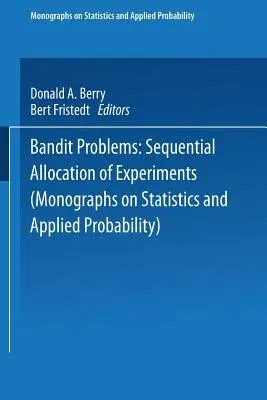Donald A Berry
(Author)Bandit Problems: Sequential Allocation of Experiments (Softcover Reprint of the Original 1st 1985)Paperback - Softcover Reprint of the Original 1st 1985, 13 November 2013

Qty
1
Turbo
Ships in 2 - 3 days
In Stock
Free Delivery
Cash on Delivery
15 Days
Free Returns
Secure Checkout
Part of Series
Monographs on Statistics and Applied Probability
Print Length
275 pages
Language
English
Publisher
Springer
Date Published
13 Nov 2013
ISBN-10
9401537135
ISBN-13
9789401537131
Description
Product Details
Authors:
Book Edition:
Softcover Reprint of the Original 1st 1985
Book Format:
Paperback
Country of Origin:
NL
Date Published:
13 November 2013
Dimensions:
23.39 x
15.6 x
1.52 cm
ISBN-10:
9401537135
ISBN-13:
9789401537131
Language:
English
Location:
Dordrecht
Pages:
275
Publisher:
Weight:
399.16 gm

